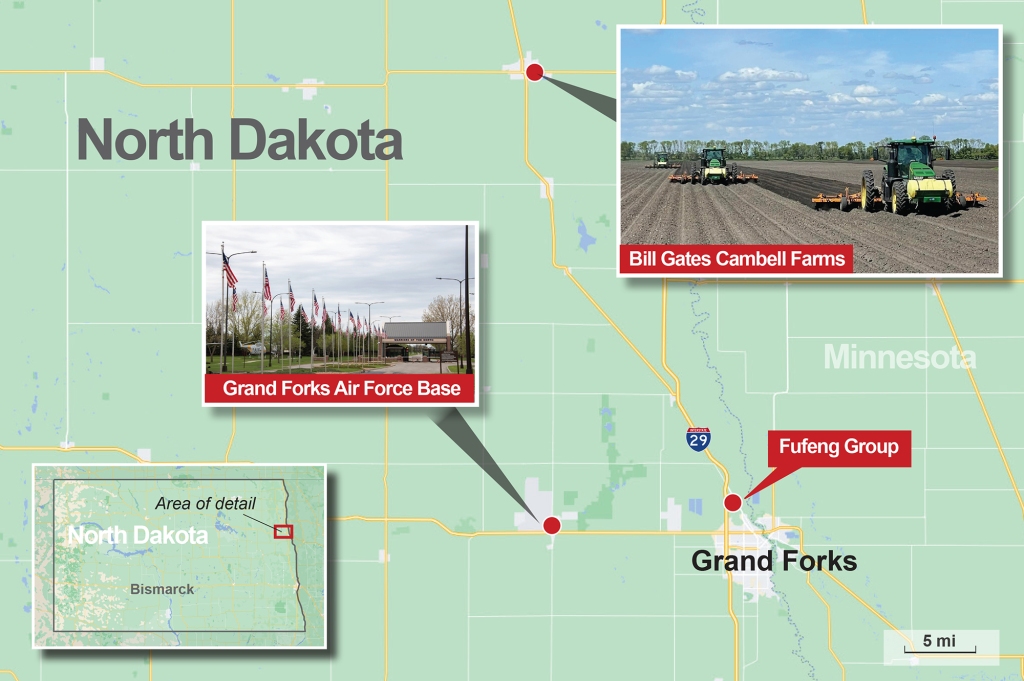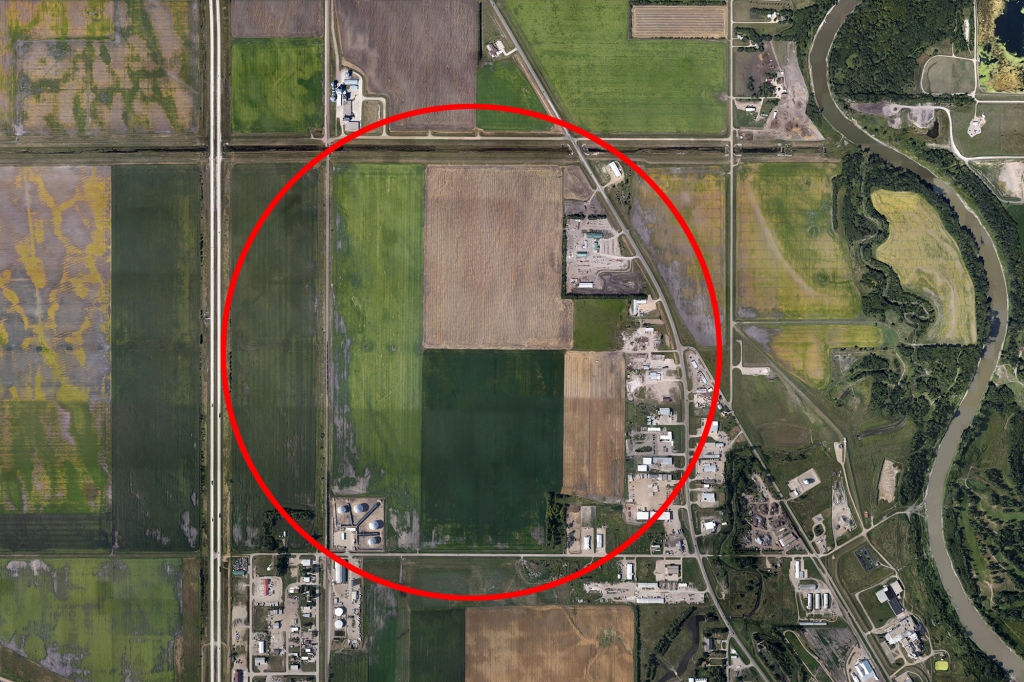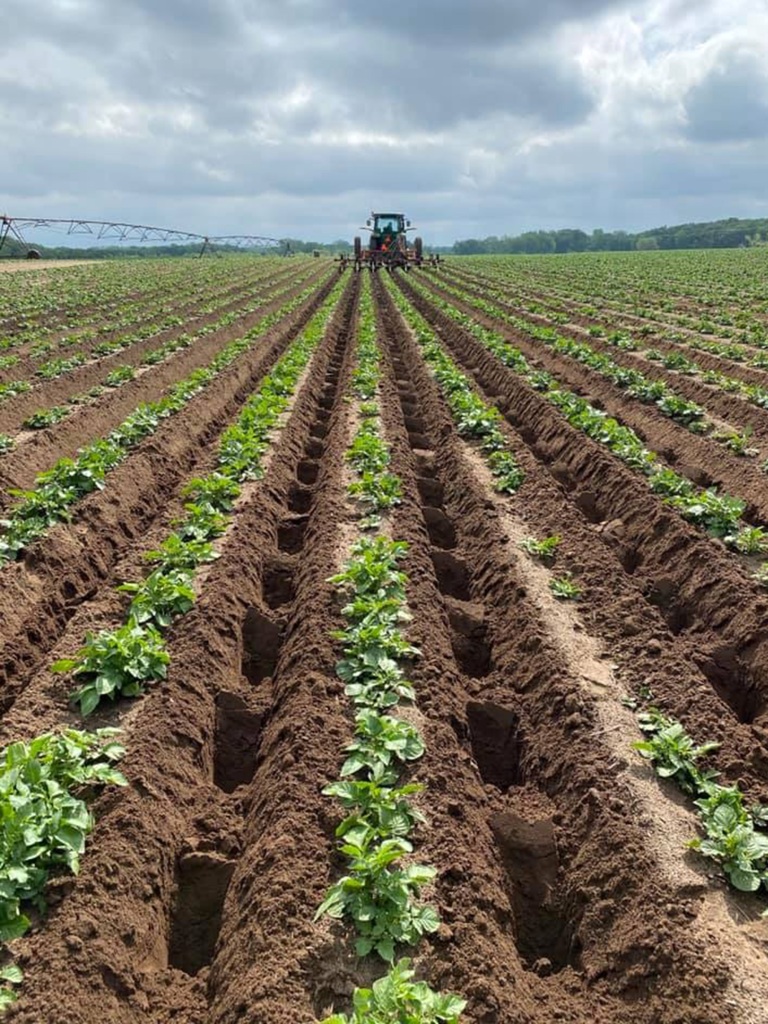Bill Gates shoots down rumored Chinese link to N.D. farmland
Bill Gates’ $13.5 million investment in 2,100 sprawling acres of North Dakota land has raised questions — as the purchase coincided with a controversial Chinese company buying 370 acres of farmland just 40 miles away.
But the Microsoft tycoon is shooting down accusations that he has any ties to that company, The Post can exclusively report.
“There is absolutely no connection between the Gate[s’] North Dakota farmland investments and the Fufeng Group,” a spokesperson for Cascade Investment, which oversees the investments of the Bill & Melinda Gates Foundation Trust and Bill Gates, told The Post.
In the spring, the Fufeng Group, the largest privately-owned xanthan gum producer and flavor enhancer in China, dropped $2.6 million for farmland near Grand Forks — a rural area that borders Minnesota and is about a 90-minute drive from the Canadian border.
The biggest concern has been the Chinese company’s proximity to a Grand Forks Air Force Base — a United States military installation located 20 minutes down the road.
“Some of the most sensitive elements of Grand Forks exist with the digital uplinks and downlinks inherent with unmanned air systems and their interaction with space-based assets,” Officer, Maj. Jeremy Fox, wrote in an April memo obtained by CNBC, adding that any such data collection “would present a costly national security risk causing grave damage to the United States’ strategic advantages.”

The investments from both parties had locals raise their concerns to North Dakota Agriculture Commissioner Doug Goehring on a July 6 in a town meeting.
“If China’s gonna be there, they’re gonna be darn close to the airbase there,” resident Charles Sabol said, also expressing his concerns about the Gates investment, in the meeting recorded by The Dakotan.
“People that live in that area, people that live around the state know about the situation,” Goehring said in response, “They’re probably more angry because, first of all, they don’t want Bill Gates as a neighbor, but the land was sold for less than what it would have been auctioned.”
Goehring, however, reiterated the legality of owning farmland in the United States.
“96% of everything produced in North Dakota leaves our state,” said Goehring. “Some of it goes to surrounding states, across the border, or it ends up someplace else. I like that we have more value added.”

“I don’t like that it’s China, but the reality is, I don’t have a leg to stand on because if there’s nothing unlawful about it, just because I don’t like something, doesn’t mean it should go away.”
It wasn’t long before Subreddit chains and conservative voices began inquiring whether Gates, 66, had any ties to the Chinese investment near Grand Forks. Theories began spreading that a future food shortage could lead to a collaboration between China and Gates to invest in American farming land and take control of the country’s food supply.
But a rep for Gates is calling these claims ludicrous.
“Cascade leases the majority of its land to farmers and is committed to the safety and sustainability of both its farmland and its people,” the spokesperson for Cascade Investment said.
“In North Dakota, the Pembina and Walsh County farmland purchased by Red River Trust in 2021 is leased to the Campbell family which has a long history of operating these Pembina and Walsh County farmlands, which has continued under the ownership of Red River Trust.”
Gates is considered the largest individual private owner of farmland in the country with more than 280,000 acres across dozens of states, according to last year’s edition of the Land Report 100, an annual survey of the nation’s largest landowners. But in total the Microsoft co-founder owns less than 1% of the nation’s total farmland.

And for those wondering why exactly Gates has taken a keen interest in investing in farmland across the country, look no farther than the profit margins.
According to the United States Department of Agriculture, profits in the farming sector have increased by $23.9 billion in 2021. And already in 2022, the forecast averages about $100 billion in profits.
Meanwhile, Chinese owners currently control more than 192,000 agricultural acres in the US, worth $1.9 billion, including land used for farming, ranching and forestry, the Agriculture Department told Politico last year.
But why specifically North Dakota? That remains unclear.
According to a press release by the Grand Forks council, Fufeng Group has chosen the town as its first US-based manufacturing facility “after a 16-month comprehensive evaluation process,” where they are expected to produce 25 million bushels of corn annually.
Meanwhile, a rep for Gates did highlight to The Post their Leading Harvest initiative, which “requires farmland owners to work to continuously improve soil health, biodiversity, and water, air and crop quality on their farms.”

But there is a very clearly distinction from Gates’ foundation, which focuses on humanitarian efforts, and his foundation trust, which solely focuses on financial investments.
“The endowment that funds the Bill & Melinda Gates Foundation is independently managed by a separate entity, the Bill & Melinda Gates Foundation Trust,” a spokesperson for Cascade Investment told The Post.
“Foundation staff have no influence on Trust investment decisions, and no visibility into the Trust’s investment strategies. Farmland investments overseen by Cascade are completely unrelated to the Foundation’s programs or efforts to advance agricultural development in Africa or anyplace else in the world.”
And Gates says investing in more farmland in the future is not off the table.
“Going forward, in line with the spirit of Leading Harvest, Cascade plans to continue to evaluate and implement new initiatives that will improve the overall sustainability of its farmland portfolio,” the spokesperson revealed.
Read the full article Here


